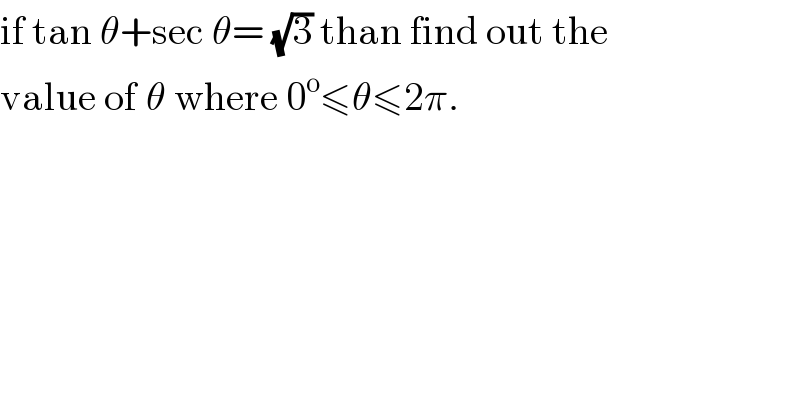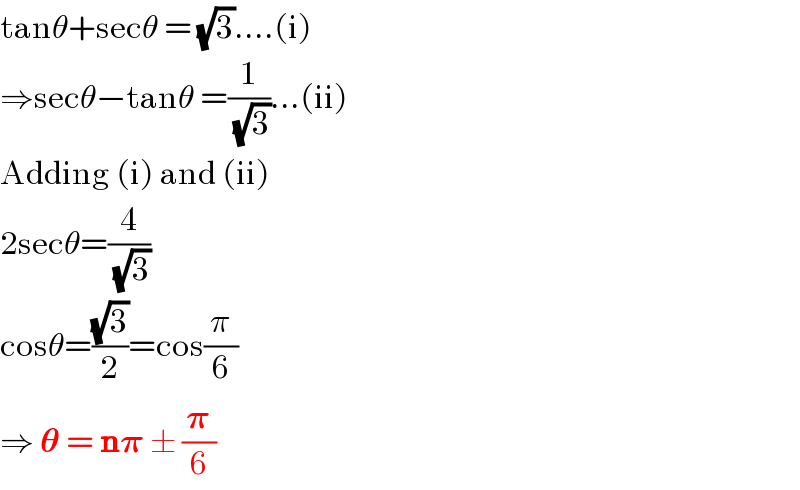
Question and Answers Forum
Question Number 69953 by Shamim last updated on 29/Sep/19

Commented by Shamim last updated on 29/Sep/19

Commented by mathmax by abdo last updated on 29/Sep/19
![tanθ +(1/(cosθ)) =(√3) ⇒cosθ tanθ +1=(√3)cosθ ⇒ sinθ +1=(√3)cosθ ⇒(√3)cosθ −sinθ =1 (with θ≠(π/2)+kπ) 2(((√3)/2)cosθ −(1/2)sinθ)=1 ⇒cosθ cos((π/6))−sinθ sin((π/6))=(1/2) ⇒ cos(θ+(π/6))=(1/2) ⇒cos(θ+(π/6))=cos((π/3)) ⇒θ+(π/6) =(π/3) +2kπ or θ+(π/6) =−(π/3) +2kπ ⇒θ =(π/6) +2kπ or θ =−(π/2) +2kπ (k∈Z) solutions on [0,2π] 0≤(π/6)+2kπ≤2π ⇒0≤(1/6) +2k ≤2 ⇒−(1/6)≤2k≤((11)/6) ⇒ −(1/(12))≤k≤((11)/(12)) ⇒k=0 ⇒x=(π/6) c_2 →0≤−(π/2)+2kπ≤2π ⇒0 ≤−(1/2) +2k≤2 ⇒(1/2) ≤2k≤(5/2) ⇒ (1/4)≤k≤(5/4) ⇒k=1 ⇒x =((3π)/2) but this is not so<ution!](Q69959.png)
Commented by Prithwish sen last updated on 29/Sep/19

Commented by mathmax by abdo last updated on 29/Sep/19

Commented by Shamim last updated on 29/Sep/19

